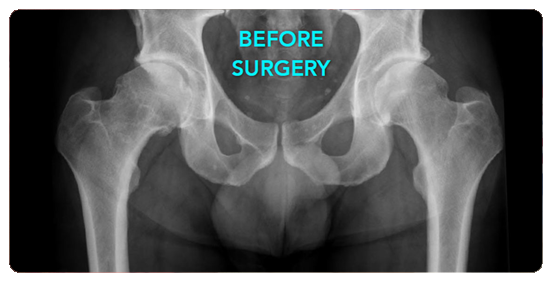Preparing For Hip Replacement Surgery
Preparing for a total hip replacement often begins several weeks prior to the actual surgery. Emphasis is placed upon the individual maintaining good physical health before the operation. Upper body strength becomes important for the ability to use a walker or crutches after the operation.
Blood work/Urine test - A blood transfusion is often necessary after hip surgery. Dr. Vaidya’s team will give you list of necessary investigations.
Various other tests such as a complete blood count may be used with the blood work to finalize the "all clear" for surgery. The Dr. Vaidya may order blood tests and urinalysis two weeks before surgery to make sure that a urinary tract infection is not present. Urinary tract infections are common, especially in older women, and often go undetected. Please inform about:
- Allergies
- Tooth procedure
- Other skin ailments
- Drugs that you are taking
ECG -
Provides information regarding the condition of the heart for surgery.
Chest x-ray -
Provides information about the respiratory status of the individual.
Anesthesia consult -
An anesthesiologist (a medical doctor specializing in anesthesia) explains what types and options of anesthesia are available for hip surgery. The anesthesiologist will also advise about taking routine medications on the day of surgery.
Assessment by a member of the nursing staff -
The nurse meets with the individual to explain and describe nursing care prior to and after the surgery.
Assessment by a physical therapist and an occupational therapist -
These two members of the rehabilitative team provide preoperative education to help prepare for the surgery. The physical and occupational therapists can assist with preoperative programs which may include exercises as well as arranging for special equipment such as walkers, canes, and reaching aides that may be needed after surgery.
Other preparations -
Some individuals can be asked to have a dental checkup if they have not had one recently. Addressing dental problems before hip replacement can prevent infections that might affect the new joint. The person undergoing surgery for total hip replacement will be given specific instructions regarding eating and drinking before surgery from the anesthesia department. The physician, anesthesiologist, and nursing staff will need a list of all prescription and non-prescription medications being taken. At the discretion of Dr. Vaidya, aspirin or aspirin-containing medications may be discontinued two weeks prior to surgery.
